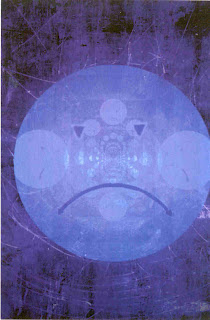 by Tricia Dower
by Tricia DowerEvery Tuesday afternoon, a young helmeted cyclist brings a container to our door. Inside are fruits and vegetables from Share Organics, a distributor of produce from organic farmers. They purchase from the closest sources possible (including greenhouses), although in the winter they go as far afield as California and Mexico in order to provide the full service.
Colin and I got involved to support the food security movement on our vulnerable little island. Fifty years ago Vancouver Island produced 85% of its food. Today, only 10%. If we rely exclusively on food that’s ferried or flown in, we’ll be in trouble if/when fuel shortages and/or border closings make food prohibitively expensive or simply unavailable. What’s more, transporting food long distances increases global energy use and the food isn’t as fresh. Does it cost more than organic produce from the grocery store? Probably, but insisting on cheap prices keeps farm worker wages exploitatively low and their working conditions unsafe. We pay $27 a week. For our most recent delivery, that bought us 3 pounds of apples, 1-½ pounds of bananas, 1 lemon, ½ pound of yellow cooking onions, ½ pound of snow peas, ½ pound of mushrooms, 1 pound of carrots, 1 bunch of broccoli, 1 bunch of spinach and ¼ pound of salad greens.
We started this service in December and I had visions of us gnawing on nothing for months but root vegetables and apples that had been put into storage in the fall. I was amazed at the variety of veggies left at our door, ones I had never seen, much less prepared: Jerusalem artichokes (they make a delicious but, unfortunately, gassy soup), celeriac (eat it raw or cook with potatoes and mash together), daikon radish (great shredded on a salad), and rainbow chard (pan cook like spinach in a little bit of oil, with lots of fresh garlic and only the water left on the leaves after washing). I am now a rainbow chard junkie.
So far we’ve also received yams, white and red potatoes, beets, broccoli, carrots, celery, parsnips, kale, leeks, chives, spinach, romaine lettuce, brown, white and Portobello mushrooms, mustard greens, cauliflower, ginger, parsley, rosemary, oranges, lemons, grapefruit, tangerines, mangoes, avocados, snow peas, tomatoes, onions, frozen blueberries and raspberries.
We know what we’re getting every week and we can customize our order, but it’s always a surprise to see what the stuff looks like. One week we were supposed to get a couple of pounds of yams and I suppose we did but they came as one humongous potato that would have taken an age to bake. We sliced it, barbecued the slices (yes, you can grill out year-round in Victoria) and dipped them in peanut sauce. We’ve gotten some gigantic beets, as well. If you have hours to kill some day, try making:
Beet Chips
- Peel raw beets and slice them really thin; 1/8th inch if your knife is sharp enough and you have Popeye muscles.
- Bring 2 cups water and 1 cup sugar to a boil. Plop in the slices and remove from heat. Soak for one hour.
- Drain and place slices on aluminum foil covered pan. Bake at 250° until crisp – two, three, four hours, maybe. Build a bookshelf while you’re waiting or weave a rug.
Coming soon: fresh BC asparagus and rhubarb, not to mention the radishes, potatoes, beets, carrots, red peppers, lettuce, tomatoes and chard (!) Colin has planted in our tiny back yard. Life is good.
Photo: Our regular delivery guy, the one on the left, was training the one on the right the day I snagged them for this shot.
Recipe (minus the wisecracks) compliments of Victoria writing group buddy Steve Hughes.
 The Quebec Writer's Federation presents: Readings from the QWF Mentorship Program (Screenwriting, Poetry, Non-Fiction, Fiction)
The Quebec Writer's Federation presents: Readings from the QWF Mentorship Program (Screenwriting, Poetry, Non-Fiction, Fiction)















